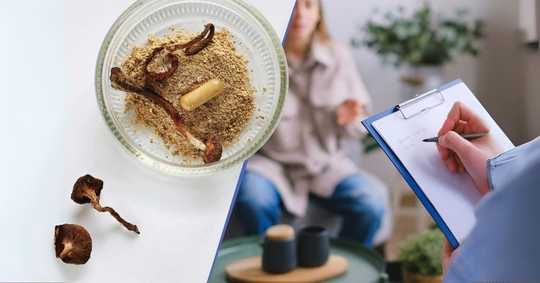Mindfulness in your relationship sounds like a great idea, whether with family, friends, and/or beloveds. But what steps can we take to make this mindfulness possible? Join Peter Craig, MA, LPC to learn how to find more connection and less conflict in your intimate relationships.
Connect with More Mindfulness in Your Relationship
Wish you had less conflict and more connection in your intimate relationships? With your kids, partner, or family members? Most of us want to have more love and less war. So what gets in the way?
Neuroscience has taught us that we automate our reality and reactions in order to manage the complexity of interacting with others. Much like instinct, many of our relationship ‘moves’ are pre-thought, and born of habit. The downside is that often those ‘moves’ are not secure, connecting moves, and not what we had hoped we would do, or say.
What is the antidote? One solution is more mindfulness in your relationship and interactions. That is to say, being more fully present and aware so we have more control over the automatic brain.
What is Mindfulness?
What does it mean to be mindful? You have probably heard about ‘mindfulness.’ So let’s define it.
Mindfulness (n): To be mindful is to have ‘moment-to-moment, nonjudgmental awareness’ [1].
Moment-to-moment refers to noticing what is happening as it is happening. So often, when we get into conflicts, we’re in a typical range of emotion. But then something triggers us. Finally, all of a sudden we start getting reactive and maybe even highly over-reactive (“stop acting like my mom!”).
Being able to monitor what you’re feeling moment by moment, especially when things get hairy, is a valuable skill. It’s not just valuable for being aware of yourself, but also for communicating what you need from others and to keep things from escalating. (Bonus points for being able to be aware of your partner’s state moment by moment.)
Being able to monitor what you’re feeling moment by moment, especially when things get hairy, is a valuable skill, not just for being aware of yourself, but also for communicating what you need from others and to keep things from escalating.
For example, let’s say you and your partner are in a fight. You’re talking about an issue that has been causing you conflict for a while. Your partner says something in a tone that you don’t like. Next, you notice that your body tenses up and your mind starts to race. Instead of this event leading to a comment you may later regret, try to notice your physical and emotional reaction and practice the following:
1. Pause. Pause… Pause
Part in parcel with pausing is breathing (taking a deep belly breath now) and relaxing (letting your muscles relax as you exhale). Practice building in pauses with your partner (and friends and family!). Now…where were we?
Nonjudgmental: Not only do annoying and painful things happen regularly, but we fret about what could happen or ruminate over how badly things happened. We tend to judge ourselves harshly (own worst enemy, anyone?) and that leads to a compounding effect of suffering. Mindfulness is largely about being kinder to ourselves by accepting that life is full of suffering but that we don’t have to guilt trip ourselves over and over–life is painful enough as it is.
Our brain tries to simplify things (surviving is hard) and that can lead to black and white thinking: “Is this good? Is this bad? Yes or no?” We all know, however, that there are many shades of grey (no we’re not going there!). Instead of judging something as good or bad (i.e. being late for an important meeting), be curious about how you feel about it. If you’re late for a meeting, notice that you’re annoyed at yourself. Or notice that you’re feeling apathetic towards work. And instead of judging that feeling as good or bad, just notice it. Notice also what you’re feeling in your body. If you can stay in a place of just noticing with curiosity, you may free yourself from an oversimplifying ‘bad’ that adds more self-criticism to being late. Now that we’re pausing, witnessing internal sensations, and attempting at being kinder to ourselves, let’s…
2. Notice, examine, and challenge critical thoughts
Cognitive approaches to therapy are about 1) noticing your thought patterns, 2) examining them (is this true? is this necessary? is this irrational?), and challenging them [2]. Say you don’t do as well on a test or sales call as you wanted. Can you accept that without being overly critical of yourself or will you say “I’m not that good” or “I’m a disappointment” on repeat?
First noticing these thoughts moment by moment will clue you into what you’re feeling about what happened. Next, when you examine things, you may realize that you actually tried hard and did okay. It’s not perfect, but no one is perfect. Can you bring your thinking more in line with the reality of your situation? Next, can you challenge overly harsh thoughts with a more positive view? (“Even though I didn’t do as well or make as much money, I accept where I am with kindness towards myself.” Say it out loud if you like!)
Tip: Write a statement down on a card that affirms your worth in a way that feels authentic to you. Visit it daily or even more often.
3. Track your partner’s nonverbal cues like tone of voice, proximity, eye contact, and facial expressions.
Being able to notice subtle changes in the moment and acknowledge them can improve your relationship more than almost anything. Why? Because when you get off the same page, you can get back on it faster. For example, let’s say you’re having a sensitive conversation with another person and their words are approving but you see a subtle look of hurt. Instead of ignoring the look and accepting the words, notice the look. Observe the moment and be curious. You might say, “I’m seeing the expression on your face change, are you feeling differently?”
4. Look for and acknowledge the emotional content of what your partner says (not so much just the words).
Want to be a better date? Want your partner to feel more connected to you? Notice emotion and acknowledge it, as opposed to ignoring or avoiding it. ‘Dealing with’ emotions takes energy, so we tend not to talk about important things until they blow up or reach a breaking point. A typical pattern is one partner being vocal in his or her emotional frustration, and the other shutting down, fearing conflict, and avoiding the stress of the situation. Being able to name the emotions as they happen and share them can help you feel closer to your partner and more understood. You might say, “I notice that you seem sad as you’re saying that. I want to know more about that and am about to step into a meeting, can we talk about this tonight at dinner? I’m a little sad as well, and would enjoy us exploring it.”
5. Being present each moment and exploring emotions takes more brain power – Know your limits.
We can’t talk about our feelings all day every day with everyone. Why not? Because vulnerability takes a lot of emotional energy, along with the brain power to fuel it (glucose and oxygen to the prefrontal cortex³). Avoiding emotions indefinitely (#workingmillennials?) means we don’t have to deal with what we’re feeling. But at some point that will probably blow up. At your partner. At your boss. Even at your self!
Knowing the energy it takes to explore and express deep emotions, you might build in quality time in your relationship to have space for that. Once a week. Gosh, once a month? You don’t have to ‘get into it’ every single time you hit a bump. Ritualize time to be vulnerable, open, and communicative, or you may watch your relationship suffer. Practice meditation regularly to increase blood flow to the prefrontal cortex and it will increase your capacity to be with challenging feelings alongside others! [4]
6. Conflict is not always about you. It may be about what’s before you, and before that.
Imagine your personality like the tip of an iceberg. Under the water, lie the hurts you’ve harbored from your current relationship. Underneath that, lie the hurts from your previous relationships. And even below that, lie the hurts from your childhood experiences with your primary caregivers. Most of our automatic reactive patterns in intimate conflict stem from our unconscious past. Surprised? Probably not, right?
But how much time have you taken to explore those hurts? Not only does it take more brain power, it takes sensitivity, caring, and support to touch those painful places that still may have no resolution. In order to feel safe enough to share these kind of things with your partner, you need to feel like they won’t be used against you. Safety is fostered by attending to your partner’s needs, and they to yours. Do you know what your partner needs? Do you know their triggers? How attuned to their ups and downs are you? It’s also okay to ask to be cared for yourself!
7. Your relationship exists to make your life better. Be a team, create mutual win-wins often.
People end up in relationships for all kinds of reasons, and even get ‘stuck in them’ sometimes. Regardless, ask yourself why you’re in the relationship. What are you getting out of it? We live in a highly individualistic culture that undervalues our collective need for partnership and community. You want to be looking for win-wins that feed both of you. Champion your partner’s dreams to help them feel good, so they can rock at life and appreciate your support. Hopefully they do the same for you. You might have a conversation about what you each want most out of the relationship, and set goals around those feelings, or things.
8. Compassionately communicate by 1) Observations 2) Feelings 3) Needs 4) Request
Mindfulness in your relationship leads to noticing and challenging automatic patterns of thought, action, and emotion. Creating rituals of observing (as objectively as possible) what happens when a certain feeling comes up, can lead to more clarity and connection in your relationship. When you learn to connect how you feel with specific actions, and then are able to express what you’re needing, you can verbalize a ‘positive, doable request’ in the present moment for your partner. Those requests help repair conflicts quickly and meaningfully [5].
Fights are inevitable, but we can learn to fight better and make up faster. It takes effort to consistently pay attention, notice subtle changes in ourselves and our partner, and have the courage to share how we feel and what we need. With mindfulness, we can practice listening non-judgmentally to our significant other and creating safer space for our truth and that of others.
Increase Mindfulness in Your Relationship Now
A little practice may allow you to experience some new wins with others, eventually adding up to significantly more connection, contentment, and intimacy! Now is a great time to begin improving your closest relationships. If you need help, we’re around to support you in the journey of having a deep, fun and satisfying relationship, whether that be in individual, couples, or group counseling. I hope these tips for how to improve mindfulness in your relationship have been helpful! Try them out and see what a difference they can make!
References:
- https://www.mindful.org/jon-kabat-zinn-defining-mindfulness/
- https://beckinstitute.org/get-informed/what-is-cognitive-therapy/
- https://www.goodtherapy.org/blog/psychpedia/prefrontal-cortex
- https://www.ncbi.nlm.nih.gov/pmc/articles/PMC4341506/
- https://www.cnvc.org/online-learning/nvc-instruction-guide/nvc-instruction-guide






